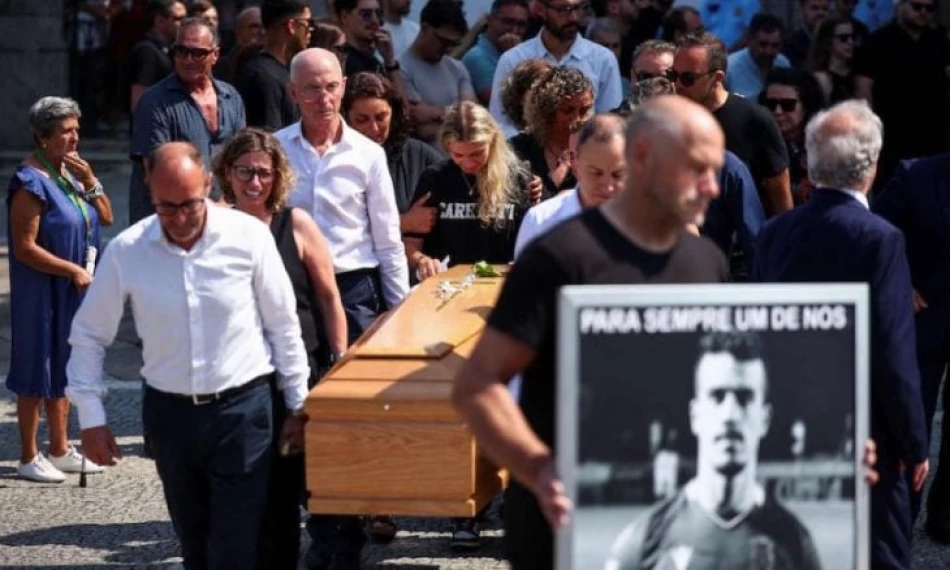
Unexpected Financial Support for Slain Striker Gota's Family
Chelsea Sets Precedent with $15.5 Million Donation to Liverpool Star's Family from Club World Cup Winnings
Chelsea Football Club has allocated a significant portion of their 2025 FIFA Club World Cup prize money to support the family of Liverpool striker Diego Jota, following the tragic deaths of Jota and his brother André Silva in a car accident in Spain's Zamora province last July. The gesture, worth $15.5 million, represents an unprecedented act of solidarity between rival Premier League clubs and sets a new standard for humanitarian initiatives in professional football.
A Groundbreaking Act of Football Unity
Despite Jota playing for their Premier League rivals Liverpool, Chelsea chose to dedicate a substantial portion of their $114.6 million Club World Cup earnings to the Portuguese forward's bereaved family. According to reports from The Athletic, the club established a $15.5 million fund initially intended for distribution among players who participated in the tournament.
However, in an extraordinary display of sportsmanship, both the club management and players unanimously agreed to redirect these funds to support Jota's family during their time of grief. Individual contributions from players are expected to exceed $500,000 each before taxes and fees.
Setting New Standards in Sports Philanthropy
Beyond Traditional Rivalries
This gesture transcends the typical boundaries of club loyalty and competitive rivalry that define modern football. While charitable initiatives are common in professional sports, it's rare to see such substantial financial support flowing between competing clubs, particularly in the high-stakes environment of the Premier League where Chelsea and Liverpool regularly battle for titles and top-four positions.
Financial Impact and Precedent
The $15.5 million donation represents approximately 13.5% of Chelsea's total Club World Cup earnings, a significant proportion that demonstrates genuine commitment rather than token gesture. This level of financial sacrifice by professional athletes and club ownership creates a new benchmark for how football's wealth can be leveraged for humanitarian purposes.
Implications for Football's Social Responsibility
Chelsea's decision arrives at a time when football faces increasing scrutiny over wealth distribution and social responsibility. With clubs generating unprecedented revenues from broadcasting deals, sponsorships, and tournament prizes, there's growing pressure for the sport to give back meaningfully to communities and those in need.
This initiative could inspire similar acts across European football, where clubs often struggle to balance commercial success with social impact. The fact that players voluntarily surrendered their bonus payments suggests a cultural shift toward collective responsibility within professional sports.
A Model for Crisis Response
The swift organization of this fund also demonstrates how quickly modern football clubs can mobilize resources when tragedy strikes. Unlike lengthy charitable campaigns or bureaucratic foundation processes, Chelsea's direct approach provides immediate, substantial support when families need it most.
For the broader football community, this sets an expectation that clubs with significant financial resources should step forward during crises affecting players, regardless of team affiliations. The gesture reinforces football's identity as a global family that transcends individual club interests when human tragedy occurs.
The initiative positions Chelsea as a leader in sports philanthropy while honoring the memory of Diego Jota and André Silva in the most meaningful way possible – through concrete action that will provide lasting support for their surviving family members.
Most Viewed News

 Sara Khaled
Sara Khaled






